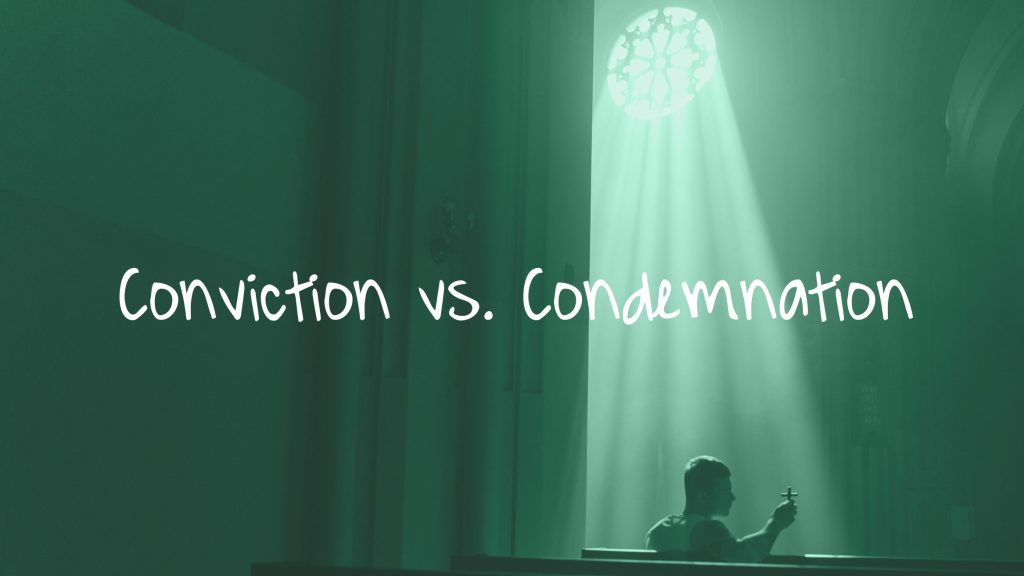|
Getting your Trinity Audio player ready...
|
There are two New Testament concepts concerning sin — conviction and condemnation.
Simply defined, conviction means knowing something is wrong. The Apostle John writes . . .
And when the Spirit comes, he will convict the world concerning sin and righteousness and judgment (John 16:8, ESV).
In the New Covenant, the Spirit teaches us about God’s holiness. And if we develop a listening relationship with the Spirit, we will be convicted of possible wayward actions and attitudes before an actual offense.
I want to be convicted about my potential actions before I do something stupid. How about you?
Now, let’s consider condemnation. It means to hand down a judgment or sentence because we have broken the law.
But the Spirit of God upends traditional views of condemnation, and as Paul says . . .
There is therefore now no condemnation for those who are in Christ Jesus. For the law of the Spirit of life has set you free in Christ Jesus from the law of sin and death (Romans 8:1-2).
This is how the grace of the Spirit deals with sin — He convicts or protects us from our sins by revealing our attitudes and thoughts that are offensive to God, but if we do sin, then He removes the sentencing by applying the blood of Jesus.
Go, Holy Spirit!
Read carefully — conviction happens before sin, and condemnation happens after we sin. But we don’t need to live in self-condemnation because we are forgiven.
There is a new law.
When we know we shouldn’t do something and do it anyway, we feel guilty, and often, that self-guilt causes us to sin again.
But the entire “action to guilty to sinful action again” process is interrupted by the Spirit. He teaches a new law where sins aren’t held against us because the expected judgment has already been meted upon Jesus at the cross.
So, we should be convicted by sin, confess our sin when stumbling, and not live in self-condemnation, as we are already forgiven.
Amazing, but that’s the new law of the Spirit!
As Paul continues to write . . .
For God has done what the law, weakened by the flesh, could not do. By sending his own Son in the likeness of sinful flesh and for sin, he condemned sin in the flesh (Romans 8:3).
Yes, let’s accept conviction, but know that our sin has already been condemned in the flesh by the Spirit.
Someone once told me that if you are walking down a street and a dog bites your leg, you don’t shout and say, “Bad dog!” You don’t beat your leg. You shout at the dog and beat it away with a stick.
Because of the new law of conviction, we don’t beat ourselves with self-condemnation. Instead, we berate the sin and praise God for His mercy. Again, the Apostle Paul writes . . .
For to set the mind on the flesh is death, but to set the mind on the Spirit is life and peace. Romans 8:6
Let’s remember conviction “yes” and self-condemnation “no.”

